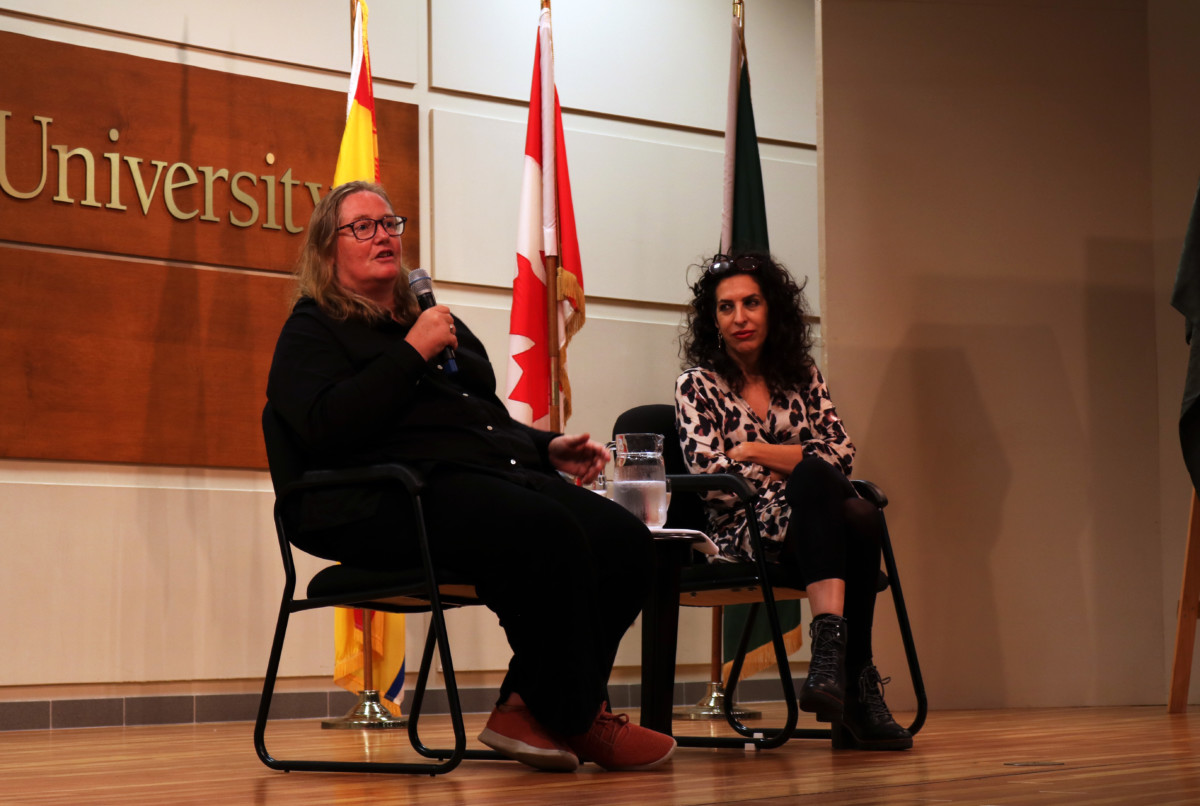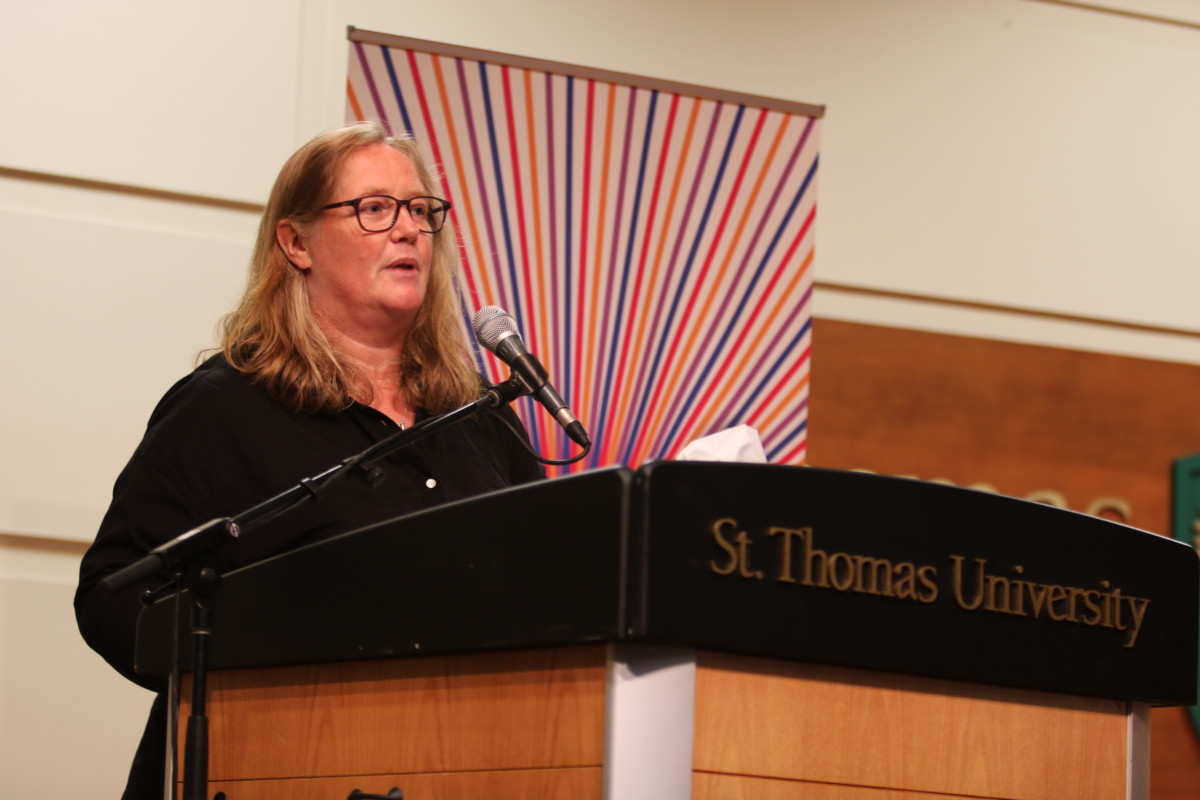Academic and journalist Emily Bell thinks a “radical” new journalism is needed to combat the decline of legacy media and the rise of misinformation.
“We have to put the kind of energy that we’ve put into making money into fixing our civics,” Bell said at the 17th annual Dalton Camp lecture on Thursday, Sept. 26.
“So I think we need to think about journalism as part of a basic human right, as part of a civic service.”
Bell, a columnist for the Guardian and a professor of professional practice at Columbia University Graduate School of Journalism, pioneered the use of digital content such as social media and live blogging at the London-based Guardian in the early 2000s.
The industry has lost 50 per cent of its reporters and editors in the past decade, said Bell, and she believes the algorithms of social media that helped break journalism business models and led to the explosion of misinformation shouldn’t be trusted to fix it. We should think of Silicon Valley’s initiatives in journalism as public relations, she said.
“Do we also really want a private company which is involved in as much civic infrastructure as Google from… putting Wi-Fi into your local area, to putting self-driving cars on the road — do we want a company that’s involved in those things also to be involved in building the local press?”
Instead, she proposes a civic media manifesto that prioritizes the journalistic mission over profit. It would require new journalistic institutions to share resources, co-operate and not just compete.

At the heart of her manifesto is the public’s right to hear important and useful information that make their lives better. Citizens also have a right to know how they’re receiving data, know what is happening to their data, to understand who is in control and what they are seeing and hearing, said Bell.
“If we start with the civics rights, then we should be able to build systems, institutions and regulation and funding mechanisms that support them,” she argued.
“It does exist in many places. Thank you, CBC.”
She noted that public broadcasters like the CBC and BBC were founded in similarly precarious times, the Great Depression and the Second World War.
She called the $600-million media support program, introduced in the federal government’s 2019 budget, “prescient” if not perfect, and said 2020 could be a crucial year for the future of journalism.
“I would hope other countries find a way to emulate that kind of policy energy. For the first time, in the 2020 United States election primaries, there are a number of candidates outlining support plans for journalism.”
The director of the Tow School of Digital Journalism at Columbia noted that Bernie Sanders has called for taxing the new media platforms to help pay for new non-profit institutions. The biggest companies in the world in Silicon Valley have spent billions of dollars on encouraging people to click on one more ad, but they haven’t worked out how to make original reporting sustainable.
“A civic media manifesto should be ambitious, and imaginative and radical.”
Throughout her lecture, Bell gave advice to journalists young and old. She reminded the Kinsella Auditorium audience of more than 150 of the important stories of the last few years, from Jeffrey Epstein to the MeToo movement.
“It’s really hard to think of any story or any scandal which has not been brought forward by the hard work of journalists.”
Bell compared the current state of journalism to the climate crisis. Neither are quick fixes, but both require our immediate attention before the situation deteriorates any further.
“A civic media manifesto recognizes that there is no end in sight, that the age of misinformation and information warfare is not a temporary state, but it is the new normal. And like climate change, I suggest we can’t afford to wait.”
Bell’s lecture will air on CBC Radio’s Ideas in the coming months.

